#Racial Stereotypes
Explore tagged Tumblr posts
Text

#feminism#feminist#sexism#racism#misogynoir#misogyny#racist#sexist#gender stereotypes#racial stereotypes#sexist stereotypes#racist stereotypes
367 notes
·
View notes
Text
Nettles and Race.
George is great at both analysing and subverting genre tropes. We see this with his portrayal of the Targaryens as bad white blonde powerful elf like people. Or his understanding consistently in his works that beauty doesn't equal morality. This is surface level, and he does have his shortcomings (how he portrays the Dothraki in a lot of aspects, etc) but I find it really interesting the amount of tropes and conventions he addresses and subverts with Nettles specifically in such a short span of the book. George uses specific racial imagery with Nettles that we don't see often from him, in short. Here's a list:
Implementation and Subversion
1. The most unlikely is, the most unlikely:
Oftentimes, in fantasy stories, the least likely is a white disenfranchised person. The majority of the time, it's because they are poor or treated poorly. Nettles is a black girl who is poor, orphaned, and marked for thieving, and none of that hinders her own feat of claiming a dragon or the accepting initially that she does. She's unlikely, extremely unlikely, the most unlikely choice.
2. Black girls are allowed to feel:
Nettles cries and grieves. Of all the dragonseeds, she's the only one positioned to feel remorse and loss after the Battle of Driftmark. She is foul-mouthed (though not written into the narrative) and fearless. Often times their is a need for black women to be strong (not have access to their emotions) or angry (the only emotion they're allowed because they're "loud"). Nettles is crass and sensitive. She's multifaceted.
3. White people don't center black narratives:
Typically, black characters in fantasy are centred around white protagonists. Nettles distinctly isn't when you focus on her. This is different from being impacted. To be impacted means you're a part of the plot. To have someone be centred in your narrative would be for your existence in the narrative to entirely depend on your relationship with them. You don't exist outside of them. Nettles does. She has an entire life up until she claims Sheepstealer without any intervention from the Targs, and after she leaves the main narrative of Fire and Blood, she has a life. This is even in a Targaryen history book.
4. Black girls deserve to be protected and loved:
Nettles is protected by the men around her in the narrative. Oftentimes, this is something not afforded to black characters, far less for black women in fantasy narratives, but she is protected. Not just by Daemon, who is someone who has extreme emotional stakes with her but by the men of Maidenpool and Lord Corlys. All of whom are white in the books. Nettles is protected by men unquestioningly. They may decide how to do it or have a bigger motive, but protecting her is never a question.
5. Promiscuity questioned:
Nettles is never shown to be a promiscuous character through an unbiased lens. Every time a person brings up Nettles' sex, it's through the lens of necessity or heavily implied to be a dramatic assumption. The two biggest cases, "her raising her skirts for sheep" by Septon Eustace is counteracted by the fact that she's marked as a thief and claims a dragon called Sheepstealer who she's likened to in the narrative and by Rhaenyra who is disproven from her "she seduced the prince with spells" theory by both the men of Maidenpool who don't believe her and Daemon who let's Nettles go. Anytime her promiscuity is presented, it's immediately questioned by who we are told she is.
6. White women tears:
Historically and in fiction, the tears of a white woman are enough to derail any existence of a black character permanently or are at least meant to. Black people, fictional or real, are consistently tormented with the notion of white woman tears or emotional outbursts. Their actions cause a major consequence with white women. With Rhaenyra, this would be Nettle slowing her head for her suspicions. Nettles does not and gets away from. The narrative. This is unheard of. In fantasy doesn't occur because most times, the black woman would be punished, but in fandom, this idea is also reflected in the call for Nettles to be replaced.
7. Relationship with the lead man:
Daemon, for better or worse, is the lead man of the dance. Nettles finds herself attached to him in a relationship that seems, for lack of a better word loving. They seem comfortable, happy, and he's doting towards her. They spend all their time together, and it's paralleled with his other 'living' relationships as well. She's portrayed as his last great love and in the universe, the singers say as much. Issues aside, this is rare. (Martha Jones, I'm sorry I wasn't your writer)
8. Power and Worship:
Nettles is worshipped and seems to become a Goddess in her own right at the end of her narrative departure. Nettles is viewed as a deity because of the power she claimed by herself. Revolutionary. Also it isn't some blink and you can avoid it thing. It ties into the main story of Game of Thrones and her clan, the Burned men helping Tyrion Lannister.
9. Mammy, Sapphire Jezabel ext:
Mammy: Maternal black woman. Lives to serve white people and nothing else.
Sapphire: Rude, loud, stubborn, malicious, 'dumb' black women, nothing else.
Jezabel: raw, sexual, can barely restrain their sexuality and live to tempt (white) men. Nothing else.
Not once does Nettles tie into any of these tropes without it being questioned in the narrative or simply ignored in her story. So many representations of black women, especially in fantasy, fall into the first two or friend not lover trope, help mate trope, etc. anything that justifies their existence by tying them to white characters with no other outlook. Nettles subverts this.
10. Season of the Witch:
Black witches and their history save me. Black witches and their history save. This aligns itself with African spiritually and the otherness assigned to enslaved women who practised both 'witchcraft' and medicinal herbology for lack of a better word.
Witchcraft is also often tied to the imagery of the irresistible black woman as it's almost inhuman to be that attracted to black women when white women are available.
So when it's said that Nettles is a witch, imagery similar to the justifications of white women during slavery are being invoked but not followed through because no one believes her.
11. Disposable Black Love interest
This is also a big issue across genres with black chapters. It happens with Laena in the show as well. When the plot calls for it (or in a lot of cases fans) you dispose of the black love interest in place of a white one. Nettles removal from the narrative immediately calls for both Daemon's and Aemond's removal from the narrative. She isn't disposable. She's a linchpin. Also, Daemon does not go back to Rhaenyra after Nettles leaves. He just dies.
12. Nothing Special:
Magical black negros that helps the protagonist, welcome to your tape.
The magical black negros trope is this convention within fantasy where a black character will appear only to be an aid to a white character by their use of magic. They don't exist or have a life outside this purpose. Nettles could've fallen into this trap.
The idea that she isn't Valyrian could have easily been tied with the spells angle outside Rhaenyra’s bias. Instead of that, however, we get the idea that Nettles is just smart and interesting. She's allowed to be smart and interesting. The narrative defends her being smart and interesting.
She might not be Valyrian. She might not be a witch or seductress. She might be just a really clever girl who defies the odds and conventions.
Conclusion
I think Nettles was both an active effort on George's part to defy conventions and subevert stereotypes and tropes as well as a way to question his reader's bias. Nettles is often reduced to trivial, replaceable, and minor when she's not. You just have to want to pay attention to her.
#hotd#house of the dragon#nettles#nettles asoiaf#netty#a song of ice and fire#daemon targaryen#rhaenyra targaryen#nettles thoughts#nettles and sheepstealer#racial stereotypes#all this nuance to make laena a strong black woman in the tv show#to make vaemond a black man killed for speaking out against percieved injustice#to make laenor an absent and abandoning father#and to make corlys both of those things and a cheater#lord guide them#george did his big one#but he wrote so little so i cant really find fault#hes real for that#george rr martin#one critque actually#dettles age gap but thats more an in universe issue
52 notes
·
View notes
Text
“White people claiming that American society is merit-based is like claiming they won a race when their opponent has their hands and legs bound.
The myth of meritocracy claims that Americans live in a fair, equal society, where hard work and resilience are the factors most responsible for shaping our lives. Under this theory, nothing stops anyone from succeeding other than, perhaps, themselves. This worldview may seem like a harmless attempt to encourage self-determination until you discover the carpet doesn't match the drapes. Once you realize that racism hinders equality, the myth of meritocracy is left bare and exposed, like the emperor, who wasn't wearing any clothes.
While the myth of meritocracy attempts to justify racial disparities as normal, this worldview is challenged by the data.
According to The Survey of Consumer Finances, the wealth of a typical White household was 7.8 times that of the typical Black household. Faced with this stark reality, many would concede that racist laws, policies, and practices created and maintained this racial wealth gap, while others, those who endorse the myth of meritocracy, would insist that Black people don't work hard enough. If they punched the clock more often, then all of their suffering would be alleviated, those endorsing the myth expect us to believe.
Many endorse racial stereotypes to justify racial disparities, calling Black people lazy or making other blanket claims to disparage the state of the black family.
It's easier for some White people to believe the world is fair than to commit to doing their part to make it so.”
—Allison Wiltz
#politics#meritocracy#the myth of meritocracy#just world fallacy#structural racism#alison wiltz#racism deniers#aversive racism#casual racism#inequality#racial wealth gap#wealth gap#racial stereotypes#victim blaming
65 notes
·
View notes
Text
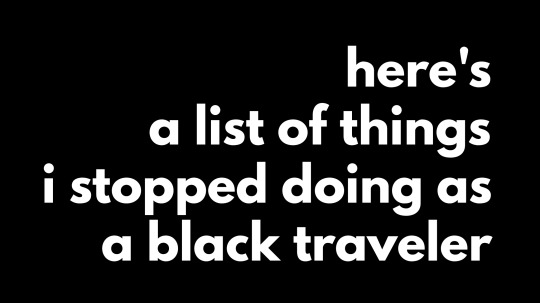
When I was in college, I let German tourists take pictures with me in my graduation gown. Even at the time I thought it was weird. But since my college years, I haven’t allowed strangers to take pics of me “just because” here or abroad. “Curiosity” means very little to me. People on the clock app were saying in China they actually have been known to post pics of Black people on WeChat to make fun of them. So, maybe not the best idea to let strangers take pics of/with you. Anyway, I wish you all safe, joyous, and comfortable travels. You deserve to see the world in peace just like anyone else.
x
#travel safety#cultural sensitivity#racial discrimination#social media etiquette#respectful tourism#racial stereotypes#international travel#cultural awareness#diversity appreciation#online harassment#racial prejudice#travel tips#global awareness#discrimination awareness#respectful interactions#multiculturalism#black solo travel#black traveller#solo travel#travel empowerment#black travel#travel experiences#cultural exploration#wanderlust#travel inspiration#adventure#diversity in travel#travel community#black solo adventure#wanderlust journey
48 notes
·
View notes
Text
Magnifying Glass: "Explorers"
Episode: "Explorers"
Series: Star Trek: Deep Space Nine
Season 3, Episode 22
Original Air Date: May 8, 1995
Teleplay Writer: René Echevarria
Screenwriter: Hilary J. Bader
Director: Cliff Bole

“Explorers” provides a window into which we, the audience, peer and see dimensions of Sisko’s character and his relationship with Jake that he is not often allowed to nurture. He’s the captain of a space station; he’s busy at all times of the day with the demands of his crew, of the governments of Bajor and Cardassia and with the imminent threat of invasion from the elusive yet brutal Dominion. In this episode, Sisko gets the time to spend doing something he is purely passionate about, exercising his creativity and the side of him that’s a big history nerd (”Why [build an ancient Bajoran lightship by hand]? Because it’ll be fun!”). We also get to see him spend some quality time with his son, Jake.
For a project of mine exploring Afrofuturism and Black masculinity, I chose this episode as one of three to study and analyze under Sisko’s importance as a character not just within the Star Trek franchise but in the broader world of television.
Benjamin Sisko’s role as a Black father is particularly pertinent to the plot of “Explorers”. Star Trek: Deep Space Nine first aired in 1993, not far removed from the hell that was the Reagan Administration. Reagan contributed grossly during his presidency to the denigration and humiliation of popular notions of the Black family and the framing of Black Americans as criminals. Mainstream films and television during and before the era, if they include Black characters at all, portray Black men as aggressive, violent and insolent, an image very much in line with Reagan’s manipulative message. Avery Brooks’ casting in Deep Space Nine as it’s Starfleet commander was an historic first for the Star Trek franchise and a step against the popular stereotypes of “welfare queens” and “absent Black fathers.” Ben Sisko - whose most defining characteristic aside from being the commander and later, captain of a space station is being a father to his son Jake - completely demolishes the “absent Black father” stereotype and all the others, firstly, by just existing. Sisko is very present in Jake’s life. Even with his duties keeping him at the station’s beck and call, he makes the time he spends with his son an unconditional priority and is quick to assure Jake of that fact. The two of them share common interests in cooking and baseball, threads that bind them to each other and to Jake’s grandfather, Joseph, who owns and runs the family restaurant back on Earth. Sisko is diligent in his care of Jake as he is for all that he loves. He is an actively loving, caring, protective and supportive father every step of the way. Sisko’s strong sense of justice means that Jake can’t really get away with his and Nog’s various shenanigans, but he is lenient and fair and always there to comfort Jake when anything goes wrong. There are multiple moments throughout the series in which they both learn from each other (this episode being one of them): a quality of their relationship that Sisko warmly welcomes. It is Jake’s care for and faith in his Ferengi friend that helps Nog earn Sisko’s respect. Their closeness allows them to have difficult conversations, to resolve arguments in a place of understanding and compassion, to be vulnerable with one another unconditionally. While initially disappointed when Jake tells him he’d rather be a writer than follow in his father’s footsteps by enrolling in Starfleet Academy, Sisko is ultimately supportive of his son’s interests because all he wants is for Jake to be safe and happy. Which is where this episode picks up from the last time the two of them discussed Jake’s future.

At this point in the series, Jake is ready to apply to college and has been hard at work writing pieces to submit to schools he’s interested in. Yet, even with his father’s enthusiastic blessing to pursue what brings him joy, Jake is hesitant to share his acceptance to Pennington back on Earth. Not because he thinks his father will be angry with him about going behind his back but because he doesn’t want his dad to be alone. By no means would they be losing each other to this new stage of Jake’s life. However, it would be the longest time they’ve spent truly apart from each other and they wouldn’t even be in the same region of space. They certainly won’t be able to go off on impromptu trips in ancient space ships on a whim or watch historical baseball games in the holosuites together as often as they do on DS9. And above all, what this episode most emphasizes is their father-son relationship, this relationship in which they are each other’s security in a turbulent, violent world that placed them at the threshold of a wormhole in the middle of a war-torn sector of the galaxy directly after losing Jake’s mother and Ben’s wife, Jennifer. Whether or not either of them are ready for it, Jake going off to Pennington means that that security in each other will change. Hence Jake’s ultimate decision to defer admission for a year to spend more time with his father and gather more experiences to write about.
This episode showcases our hero doing exactly what Starfleet is all about: exploring the cultures of other worlds and engaging with their ways of knowledge. At the same time, he is beginning an exploration of what life will be like with Jake off at school (and what life will be like with a beard) and he is also getting an insight into his son’s inner world. Both are journeys the two of them embark on together, even if one must be undertaken across many lightyears of space.

Sisko stands out as an intentionally Black character against the backdrop of the undeniably important if, comparatively, rather flat representation in Lt. Nyota Uhura and Lt. Geordi LaForge. Deep Space Nine’s writers and Avery Brooks made a conscious effort to ensure that Benjamin Sisko’s Blackness was not simply seasoning sprinkled sparsely on top of his character, but instead the essential binding factor that brought all the elements of the Captain’s personality together. Not only do we know he has his family’s Creole restaurant to thank for his cooking skills, but we get to see him be at home and with family more than once in this series. And aside from what is clearly directly tied to his Blackness, he has other interests and hobbies, like baseball, building, art and studying ancient technologies. He uses his experience as a Black man and father and his deep knowledge of Black Earth history to inform his actions multiple times throughout the series (i.e. “Far Beyond the Stars”, “Past Tense“, “Badda-Bing, Badda-Bang”, “The Abandoned”, “By Inferno’s Light”, “Waltz” and “The Maquis”, to name a few). In this episode, we even see him wearing a top inspired by West African dashiki patterns.
Commissioned on Deep Space Nine, his identity as a Black man, even in the supposedly utopian Federation, positions him as someone able to sympathize with the Bajorans in a way that none of his contemporaries Kirk, Picard, Archer, Pike, Lorca or Janeway ever could: both his people and theirs have histories of violent systemic oppression and persecution, as well as continuously developing histories of liberation. He understands their need to reclaim their land, knowledge and ways of life because that is what his ancestors began and saw through. And it is what he, Jake, Joseph and Kasidy, their descendants, carry on and embody in the 24th century. He builds the Bajoran lightship in order to prove that the ancient Bajorans were capable of such technological prowess as to get all the way to Cardassia without a warp drive despite dubiety from both his coworkers and the Cardassians themselves. So not only does he connect with the Bajorans’ struggles in a way that a white human captain cannot, but he actively participates in bolstering the repatriation of their culture and history. Little wonder why the Prophets chose him as their Emissary.
#star trek#star trek ds9#ds9#deep space nine#benjamin sisko#ben sisko#captain sisko#benny russell#avery brooks#jake sisko#joseph sisko#kasidy yates#jennifer sisko#nog#bajoran lightship#black masculinity#black fatherhood#afrofuturism#fuck reagan#racial stereotypes#nyota uhura#geordi laforge#james t kirk#jean luc picard#jonathan archer#christopher pike#gabriel lorca#kathryn janeway#s3e22#explorers
13 notes
·
View notes
Text
instagram
#actually autistic#autistic people of color#autism community#autism support#autism advocacy#racism#systemic racism#institutional racism#racial stereotypes#autism diagnosis
16 notes
·
View notes
Text

Cream of Wheat, 1917
23 notes
·
View notes
Text
#KACHOW Motherfuckers!#tumblr polls#racial stereotypes#hollywood#polls#hollywood stereotypes#orientalism#racism#movies#cinema#tv shows#superhero#superpowers#writing tropes#tropes
9 notes
·
View notes
Text
The Problematic Association of Darkness with Evil
Considering darkness as inherently evil is problematic for several reasons, including the conflation of symbolic meanings, the perpetuation of harmful stereotypes, and the oversimplification of complex concepts. Here are some key issues with associating darkness with evil:
1. Symbolic Connotations:
Cultural Variations: Different cultures have varied interpretations of darkness. While some may associate darkness with evil, others may see it as a symbol of mystery, the unknown, or even tranquility. This diversity in symbolic meanings shows that darkness itself is not universally linked to malevolence.
Nature of Darkness: Darkness is a natural and neutral phenomenon, such as the absence of light during night time. Equating it with evil overlooks its fundamental role in the natural world, including its necessity for rest and the cyclical balance of day and night.
2. Harmful Stereotypes:
Racial and Cultural Implications: The association of darkness with evil can perpetuate negative stereotypes and biases, especially in terms of race and ethnicity. Historical and contemporary racial prejudices have sometimes used the symbolism of darkness to reinforce discriminatory views and practices.
Mental Health: Linking darkness with negative qualities can also stigmatize mental health issues related to depression or anxiety, which are often metaphorically described as "darkness" or "dark periods" in one's life. This can exacerbate feelings of shame or isolation for those struggling with these issues.
3. Moral and Ethical Oversimplification:
Complexity of Evil: Evil is a complex moral concept that cannot be reduced to a single attribute like darkness. Evil involves intentional harm, malevolence, or immorality, which are not inherently related to the concept of darkness. Associating darkness with evil simplifies the nuances of moral and ethical issues.
Ambiguity of Good and Evil: The dichotomy of good versus evil is often more nuanced than a simple association with light and darkness. Many moral and ethical dilemmas involve gray areas where both light and darkness can coexist, making it problematic to assign absolute values to either concept.
4. Psychological and Existential Dimensions:
Fear of the Unknown: Darkness is often associated with fear because it represents the unknown or the unseen. This fear is not necessarily about evil but about uncertainty and the lack of control. Associating darkness with evil can amplify irrational fears and anxieties.
Exploration of the Self: Darkness can also represent aspects of the self that are not fully understood or acknowledged. Embracing darkness as part of the human experience can lead to personal growth and self-discovery, rather than viewing it solely as negative.
5. Ethical and Philosophical Perspectives:
Existential and Phenomenological Views: Philosophers like Jean-Paul Sartre and Martin Heidegger have explored the idea of darkness in existential terms, focusing on themes such as the "nothingness" or "void" that accompanies human existence. These perspectives suggest that darkness is not inherently evil but a fundamental aspect of the human condition that can be approached with a sense of existential awareness.
Religious and Spiritual Interpretations: Various religious and spiritual traditions have different interpretations of darkness. For example, some see it as a space for contemplation, meditation, or spiritual growth, rather than as a symbol of evil.
The problematic nature of considering darkness as evil lies in the oversimplification of complex concepts, the perpetuation of harmful stereotypes, and the neglect of cultural and existential perspectives. Darkness, as a natural and symbolic concept, carries multiple meanings and cannot be universally categorized as evil. Recognizing the multifaceted nature of darkness helps to avoid reductive thinking and fosters a more nuanced understanding of morality, psychology, and cultural symbolism.
#philosophy#epistemology#knowledge#learning#education#chatgpt#ontology#metaphysics#ethics#psychology#Darkness#Evil#Symbolism#Cultural Perspectives#Racial Stereotypes#Mental Health#Moral Philosophy#Ethical Oversimplification#Fear and Anxiety#Existentialism#Religious Interpretations#Psychological Impacts#Social Justice#Stereotypes and Biases
3 notes
·
View notes
Photo



La Crise [The Crisis] (Coline Serreau, 1992)
#La Crise#The Crisis#Coline Serreau#amis#amitié#famille#suprémacisme blanc#racisme#xénophobie#politics#France#Vincent Lindon#Patrick Timsit#Zabou#Maria Pacôme#life#European cinema#immigration#difficultés#marriage#family#racial stereotypes#comédie#friendship#loneliness#friends#comedy-drama film#mid-life crisis#French movies#failures
2 notes
·
View notes
Text
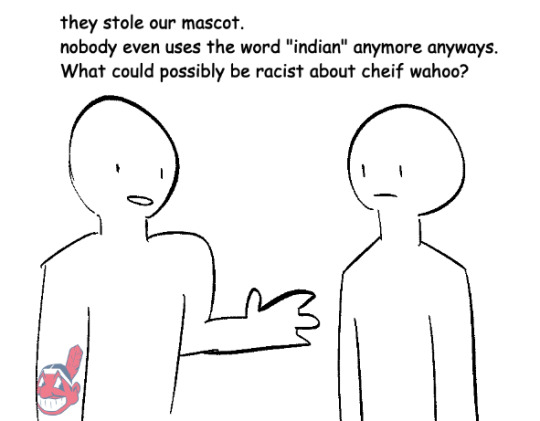


WOW I WONDER WHAT
#got in this conversation recently. admittedly it was my fault. where was the convo gonna go if they had that tattoo#tw racism#racial stereotypes
4 notes
·
View notes
Text

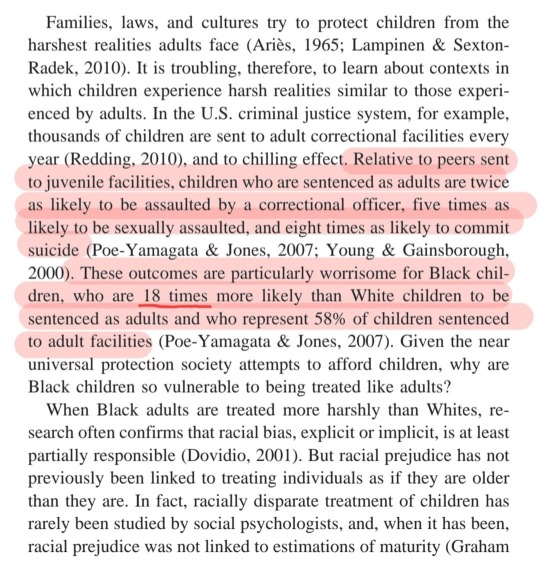

(source)

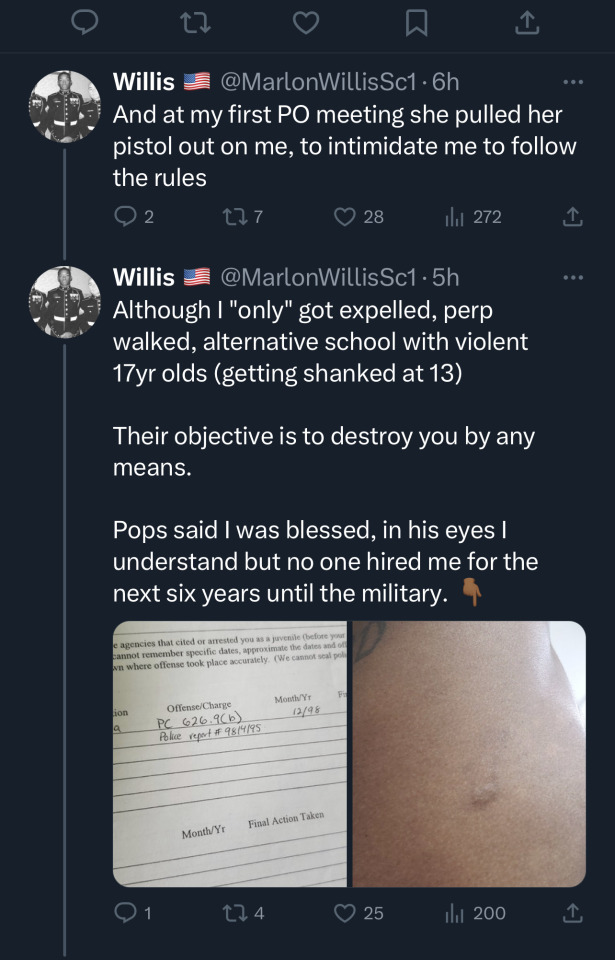
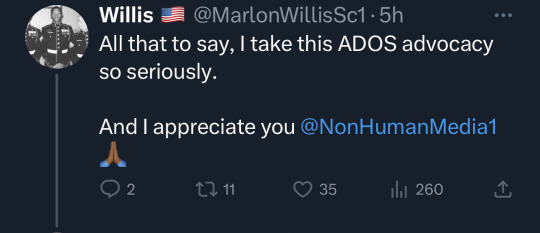
The American criminal “justice” system is deeply racist. From the police, to the jury system, to the prison system.
Mass incarceration laws and the death penalty all target Black and Brown people disproportionately. Politicians who brand themselves as “law-and-order” candidates, or as no nonsense, “tough-on-crime” politicians are fully aware of these structurally racist underpinnings of the U.S. criminal system, and they gladly use law & order as a kind of racist dog whistle: when the question is, “Who are we going to lock up?”the unspoken but understood answer is, “BLACK people!” Especially in, but not limited to, the “former” slave states (aka current Republican states.).
This kind of dog whistle politics (aka “Southern Strategy”) to appeal to conservative white southern voters is not new.
The same is true with how we treat people with drug addictions. America has two completely different views on who is deserving of compassion and who needed to be locked away in prison forever.
And if you’re reading this from a European country, please don’t make the mistake of thinking that your country is somehow different or better. HA! America is a racist country and(!) Europe is every bit as racist against Black and Brown people as anywhere else.
Universally, there is a correlation between who gets the best jobs & housing and skin color; or who gets jailed more and their skin color. These cannot be explained away without acknowledging racism.
Colorism and anti-Blackness are worldwide.
#politics#racism#mass incarceration#two americas#criminalizing blackness#racial stereotypes#southern strategy#dog whistle politics
138 notes
·
View notes
Text
x
#reparations#racial justice#historical trauma#systemic racism#social inequality#discrimination#victim blaming#racial bias#Black empowerment#reparative justice#economic disparities#social equity#civil rights#racial inequality#reparations debate#historical oppression#racial stereotypes#social exclusion#institutionalized racism#marginalized communities#racial discrimination#socioeconomic barriers#justice for descendants of enslaved people#051824
7 notes
·
View notes
Text
Your MISOGYNOIR has NOTHING to do with BLACK WOMEN…but EVERYTHING to do with YOU!!!☕️💅🏿

#black women#misogynoir#racism#anti blackness#anti black racism#bigotry#hatred#white supremacy#stereotypes#black girls#black men#racial stereotypes#sbrown82
4 notes
·
View notes
Text
Review: Recitatif
★★★★★ - 5 stars
"My mother danced all night and Roberta's was sick."

Four months in an orphanage together shaped the rest of their lives. Twyla and Roberta were inseparable when they first met. As time moved forward they fell out of touch and grew further apart. However, they find each other in random places at random intervals in their lives - in a restaurant or shopping for groceries. They even find themselves opposing each other's views at a protest. Even though they are in disagreement over every thing each time they meet, they cannot deny the deep bond forged between them and a trauma shared over a memory that neither one of them can perceive in the same way.
First of all, Toni Morrison's writing is absolutely amazing. I am truly grateful for her work's existence in the world - it without a doubt makes it a better place to live in. Recitatif is a short book and easy read, but something that differentiates it from the masses is the way that it's written. A completely beautiful piece of literature, Recitatif is written in an incredibly intelligent way. It makes you feel as though you are living through the characters; their discomfort sets you on edge and their sadness makes you feel waves of negative emotions. Yet, something unique about this book is that one girl is black, the other is white and the reader does not know which one is which.
A social experiment like no other. That is the plain truth of the importance of this book. Books like 1984 by George Orwell and short stories like The Lottery by Shirley Jackson make us uncomfortable by recognising the way in which the world may go. The sad truth about Recitatif is that it faces the way the world already is. It challenges racial stereotypes integrated into our minds. We don't know which of the two girls is black and which is white, yet our minds make assumptions based on the stereotypes Toni Morrison carefully weaved into their characterisations. It hurts to recognise the way our minds perceive the world in this way, however it's very important that we do.
Recitatif is, simply put, one of the best short stories I've ever read. It should be taught in schools. It should be required reading, and that is because it teaches common human decency. Yet, it's a lesson that we don't even realise we need because we are so blind to our own worldview. Recitatif is definitely a wonderful starting place for anyone interested in reading Toni Morrison's catalogue of writing; it's an extremely interesting piece and one you won't forget.
#recitatif#toni morrison#books#book blog#booklr#readblr#book reccs#book recommendations#bookaddict#social experiment#books about racism#racial stereotypes#short story#poc books#black authors#book review#bookworm#book annotations#books and reading
4 notes
·
View notes
Text
Husband: "So much about China the west just... gets so wrong!"
Me: "...you don't fucking say."
11 notes
·
View notes